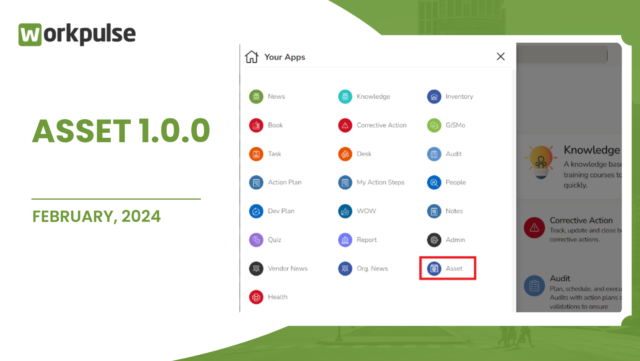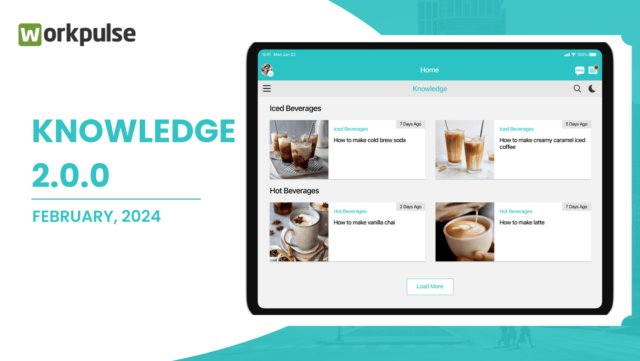One of the most common issues restaurant operators have is lack of accountability in their employees. With ongoing hiring crisis and new recruits joining the organization frequently, accountability cannot be ensured from every team member. However, managers can build accountability in their employees by empowering them with the right technology, leveraging data and analytics, and using digital solutions to make them more efficient at their work.
The most significant change restaurants have to embrace in order to build accountability is to let go of the old ways of managing operations and performing daily tasks. The old ways used by several restaurants today include making manual entries in physical logbooks, recording temperatures with analogue thermometers, taking days to track data, and planning frequent store visits to gather information. Not only is this time consuming and error prone but also makes real time monitoring impossible.
Data enables managers to make crucial decisions on time. Imagine taking a week just to go through pages of entries, which could all have been pencil whipped, just to be able to extract information for a single store. With this approach, the problem will have grown bigger by the time it was identified and it would be too late to make amendments. Moreover, employees might simply play the blame game with no one actually taking accountability for the tasks. In order to overcome such issues and to build accountability in the team, managers need to leverage data analytics and embrace technology proactively.
5 proven ways to build accountability in restaurant employees
Workpulse recently conducted a survey to identify the steps taken by restaurants to ensure accountability at all levels. As part of the survey, we interviewed QSR franchisees (subscribers and non-subscribers) and based on the inputs received, we have compiled a list of 5 proven ways to build accountability in restaurant employees.
#1: Provide the right tools
Employees avoid taking accountability when they know they can get away with not executing the tasks properly. This usually happens when the processes being followed are manual with little to no monitoring. As most tasks are redundant in nature, employees would prefer skipping it or finding a workaround. By empowering your employees with the right tools, you can take some of their burden away by automating tasks, providing notifications for tasks just assigned to them , and making it easy to input data from the convenience of a tablet or mobile device. The majority of today’s workforce comprises millennials and they prefer using technology to complete their tasks efficiently.
#2: Make supporting evidence of task completion mandatory
Managers cannot be present everywhere at all times. They have to rely on data maintained in logbooks or spreadsheets. But does this ensure that the task is completed exactly the way it is meant to be? How much damage is done by the time the manager figures out that an important inspection was skipped? Accountability can easily be enforced by making it mandatory to provide visual evidence with the use of images or videos to show that the task is completed as expected. Obviously, this can’t be achieved with the use of paper forms and physical logbooks. You need a digital solution to capture this data and also track it in real time.
#3: Implement geo-fencing with a digital solution
Geofencing refers to restricting actions done in a software based on a particular location. This is another feature which requires the use of a digital solution. Workpulse has implemented geofencing in its solutions, where it is possible to restrict users from completing tasks or entering data when they are outside the approved limits of a specific location. Workpulse users have found this feature (part of the advanced subscription) to be very useful as it discourages managers to make edits when they are not at the required location. This keeps data accurate and prevents any time/date specific tasks to be updated outside the location.
#4: Improve task management
How often do you find your employees having lack of clarity on their tasks and responsibilities? This is a major factor for missing accountability. The easiest way to address this is to create, plan, schedule, and communicate the exact responsibilities that are delegated to an employee. For example, if John is tasked with checking the coffee brewer every morning at 10 AM, and the managers find out that the task has been skipped twice in a week, then John will be held accountable for that. When employees become aware that their tasks and responsibilities are being tracked down to the last detail, they will be less likely to avoid taking accountability for their work.
#5: Leverage data analytics
Without the actual facts and numbers, you will never be able to hold any employee accountable. Just imagine having a conversation with an employee for a missed daily inspection and not being able to point out when the inspection was missed, how often it was missed over a particular duration, and how many times incorrect data was entered. You would end up going around in circles without arriving at any conclusion. However, if you had the statistics in front of you, it would be easy to show how often the errors occurred. There would be no escaping from the metrics. By using a digital solution, you can track metrics in real time and analyse trends to prevent problems from becoming critical issues.
Workpulse helps you build accountability and improve operational efficiency
3500+ QSRs can confidently claim that Workpulse has helped them improve operational efficiency at their restaurants and build accountability in their team members. Their continued growth during the pandemic clearly indicates that they have optimized their processes with our solutions and are now on the path to greater success.
To learn how Workpulse can help you improve operations at your restaurant and help your employees perform better, schedule a consultation with us today.




